Business & Management
Environmental Economists want a “Green Fund” Established
Published
2 years agoon
By
Jane Anyango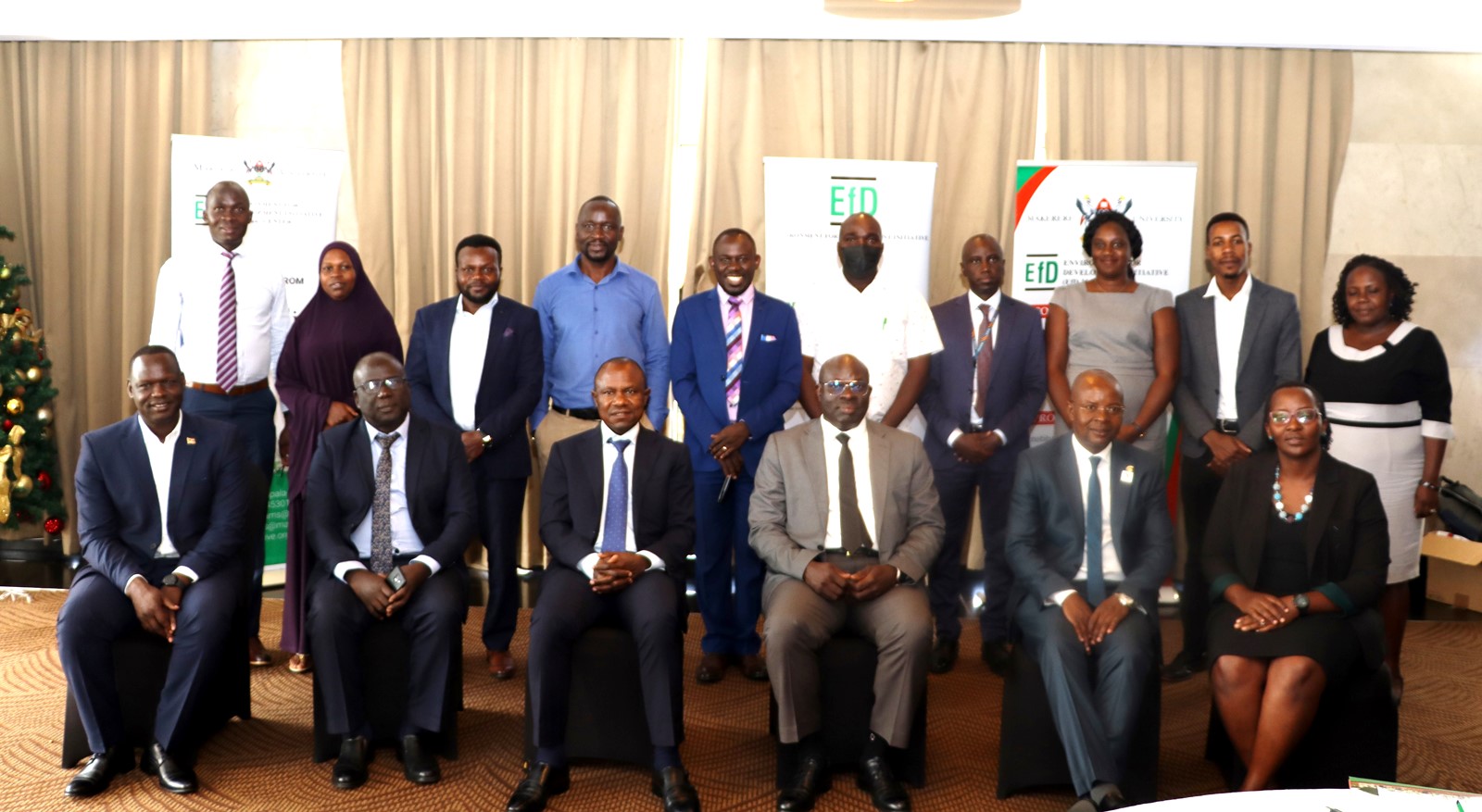
Environmental Economists from Makerere University and stakeholders in environment and natural resources sectors have expressed the need for Uganda to establish a Green Fund to finance green initiatives.
The dons have also proposed and re-echoed known initiatives that require mind-set change and government commitment to infrastructural developments that can reduce environmental pollution.
Environmentalists also want part of the Green Fund to come from greatest polluters in the country and the developed countries relative to the damage caused.
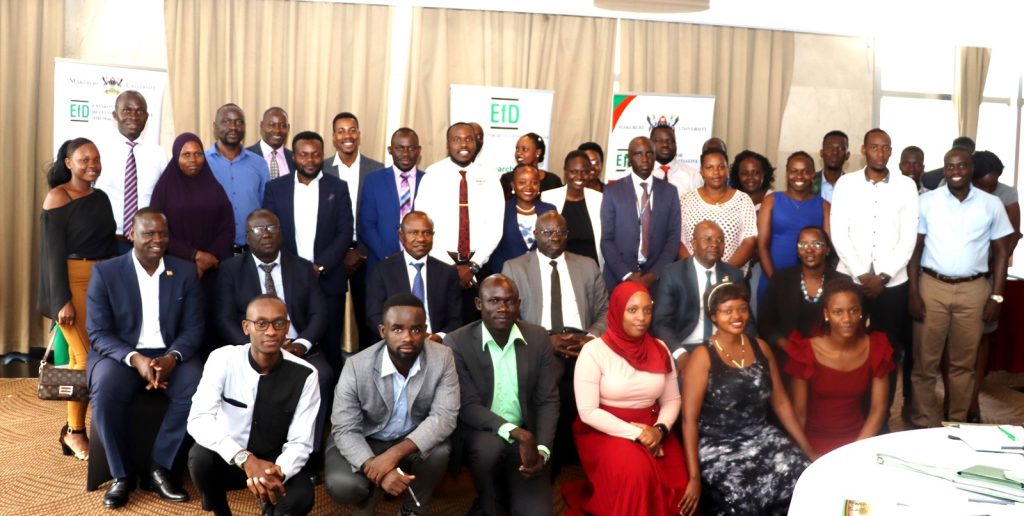
In addition, they want the African voice heard in the global discussion towards mitigation, commitment and transitioning to low carbon economies.
The call was made during the policy dialogue organised by the Environment for Development Initiative (EfD-Mak Centre) at the Kampala Sheraton Hotel as one of the mainstream activities. The dialogue held on December 20, 2023 brought together members of the academia, representatives of private sector, government ministries, departments and agencies, CSOs, manufacturers, and commercial banks on the theme, “Green Financing in Uganda: From Paper to Practice”.
The main aim of the workshop was to engage with the government to have a healthy debate how to finance green transitions and greening starting from the household level. The key message was that there is need to transit, but the transition is not cheap, it is expensive and requires deliberate effort.
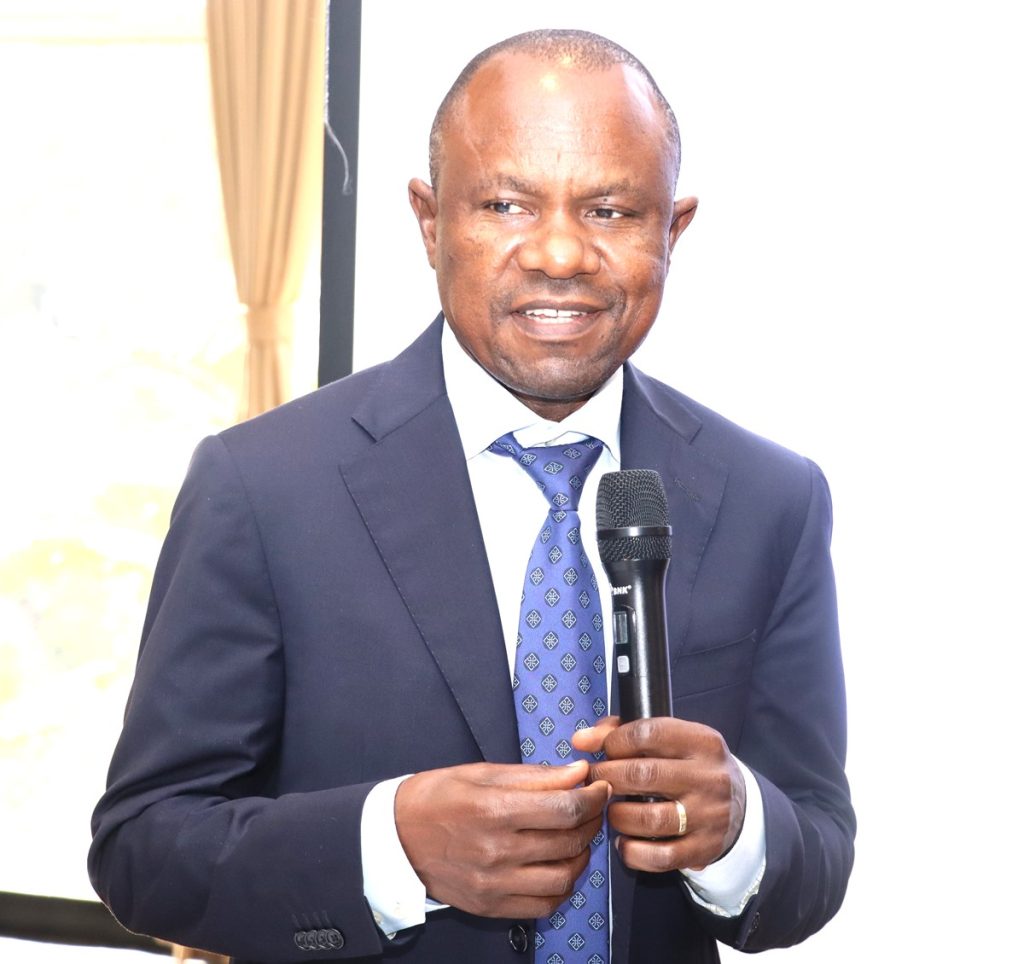
While opening the workshop, the Principal, College of Business and Management Sciences Assoc. Prof. Eria Hisali said the engagement was hinged on twin objectives of attaining low carbon outcomes and high growth outcomes which are environmentally friendly.
As researchers and policy makers, Prof. Hisali interested participants to discuss and understand the current growth landscape, where growth is coming from, and main activities that drive growth and livelihoods.
Within that landscape, the professor advised participants to address the main concerns with regard to sustainability, the environmental concerns with regard to the current sources of growth and the status quo.
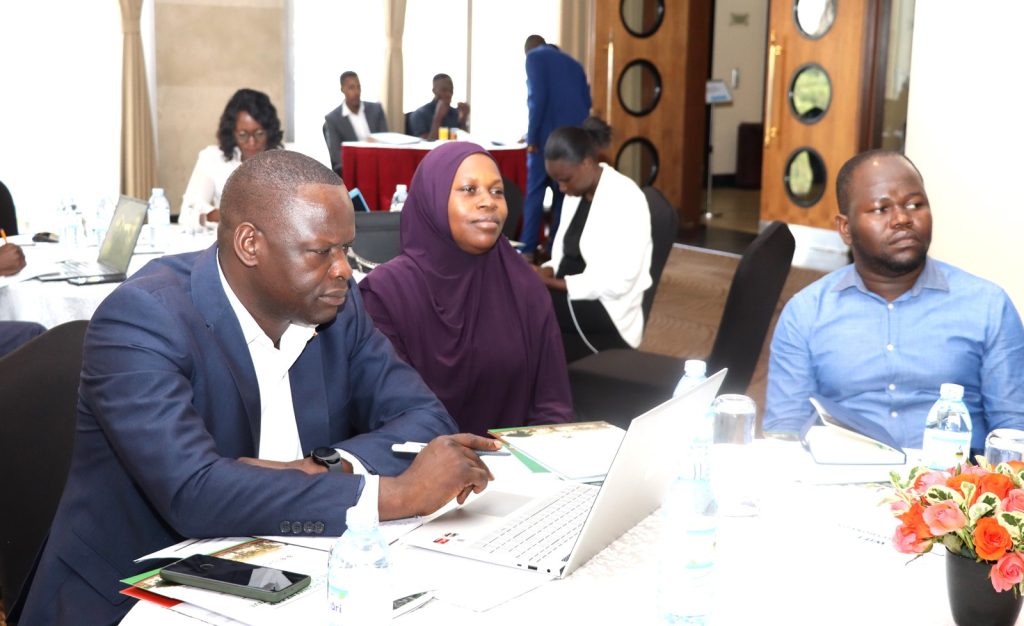
Hisali also told participants to pose a question of the disruptive effects that come along with the transitions to low carbon sources of growth; and closely related, the best options to make the transitions and finally, how the green financing strategies can be made attractive for the different actors to take them on.
Outside the green financing alone, Prof. Hisali challenged participants to debate on other options that policy makers can consider to enable the transition to low carbon sources of growth to start taking place.
The Professor also guided participants to have discussions on the framework for enforcement and auditing of the transition process itself, asking, what is it that they can do to ensure that they are tracking the progress made and whatever has been agreed upon at policy level, and ensure it is enforceable and that there are institutions and agencies to enforce that.
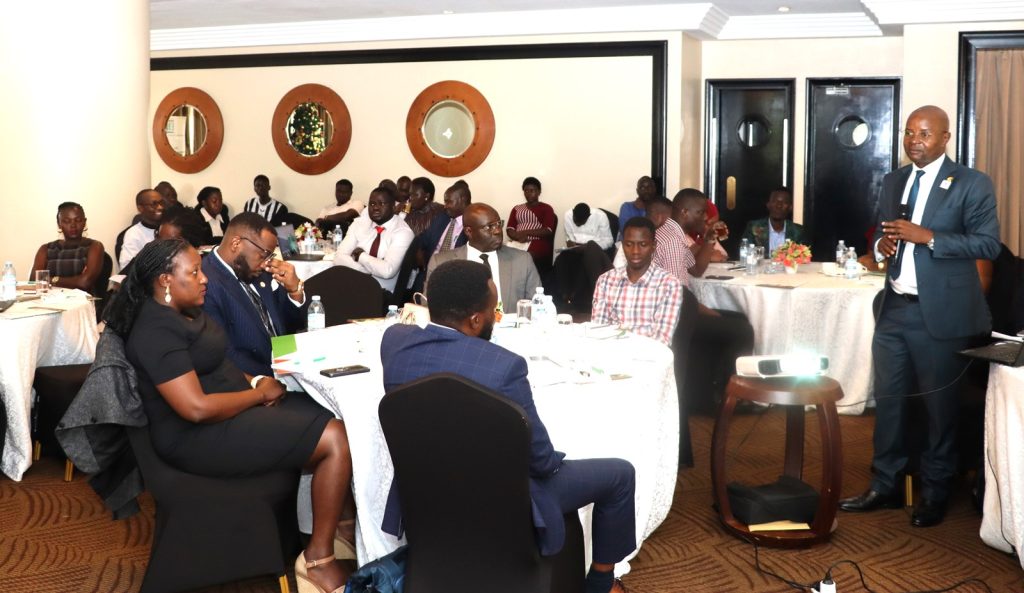
“The other issues we should be discussing is that what is our voice as Uganda and as the developing world in these discussions towards a low carbon economy. Do we have the voice as anyone else? Or is it that for us we should be making the transition while others are not, where is the equaliser. Are we in future for example going to talk about green imports or it is about us only ensuring that we go green and possibly some powerful nations look on and go to the extent of lip service”. Hisali asked.
In an interview, Prof. Hisali said, the discussion of the African voice in mitigation carbon emissions has picked traction at the global- level questioning whether all countries of the world have the same voice and commitment to addressing matters of environmental sustainability.
“This discussion is important because the transition to low carbon economies come with certain disruptions the way things are done and those disruptions are a cost. They disrupt livelihoods, slow growth and the only way we can be committed to that transition, is when we are sure that it is not only us but that everyone else has the same commitment. We all belong to the planet and we should have the same level of commitment,” Hisali stressed.
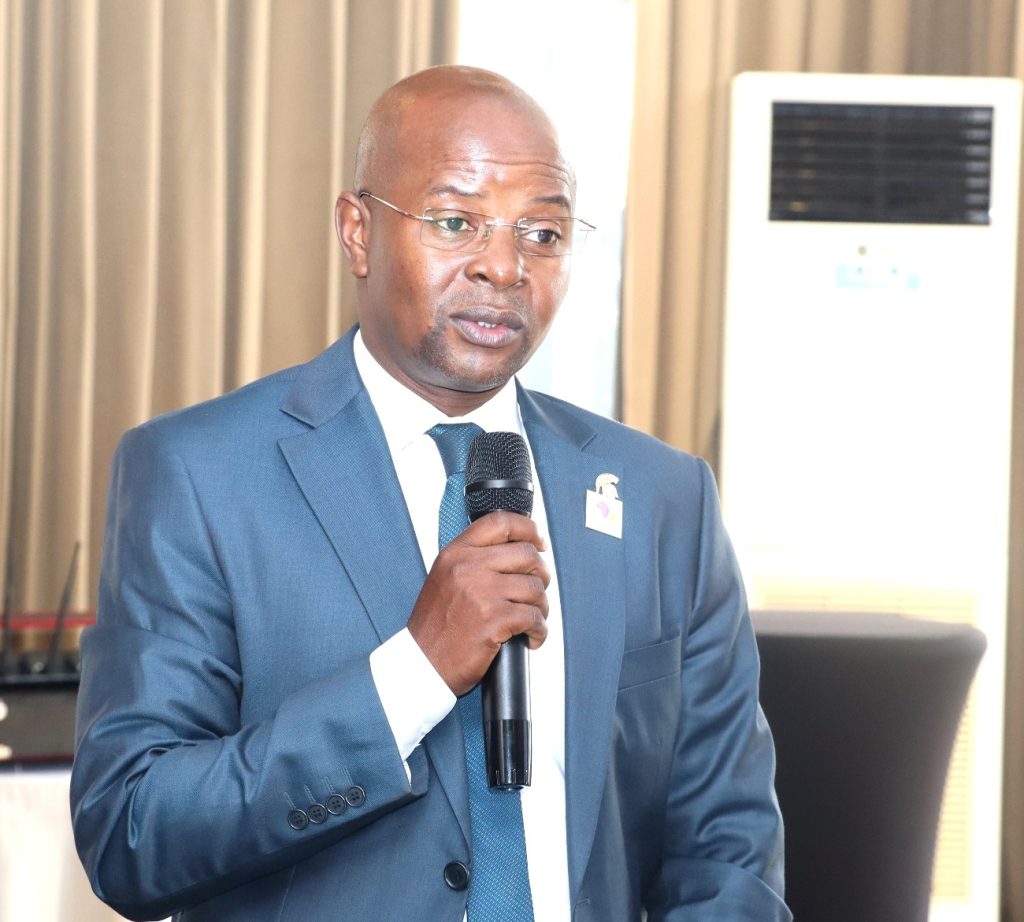
The Director EfD-Mak Centre Prof. Edward Bbaale noted that although there are more than one SDGs focused on the environment and green financing, many countries are not living up to the set aspiration of the SDG. Bbaale is also the Director, Directorate of Research and Graduate Training at Makerere University.
As a university, Prof. Bbaale said, they must undertake research and establish to what extent the country has achieved green energy transitions and inform government where the country is, and what should be done. Through research Bbaale said the university has done a lot to come up with innovations as solutions to the green transitions such as solar energy solutions and others.
Bbaale reported that the EfD-Mak Centre is focusing on environment and natural resources, on how to harness and manage the environment for sustainable development, satisfying the needs of the present generation without compromising the needs and the benefits of the future generation.
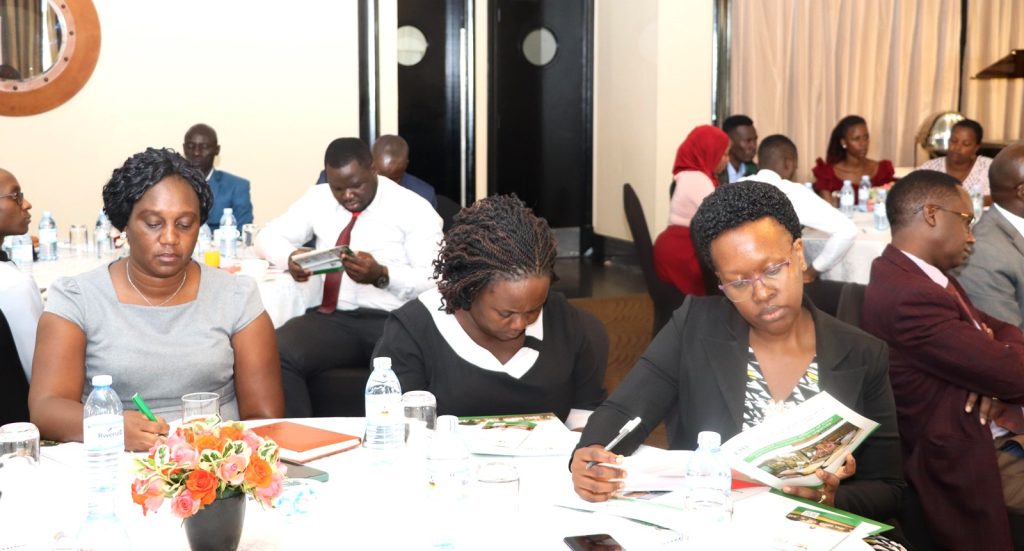
As the Environment for Development initiative, Bbaale said, the topic of green financing is based on the fact that the environment has been the most affected resources through deforestation, reclaiming of wetlands, and most of these have come partly through agriculture where forests have been cut unsustainably and for infrastructural developments.
Bbaale warned that most of these developments have taken place without minding about the environment adding that unlike human beings who forgive and forget, nature does not.
“Nature does not forgive and nature does not forget. Actually, at one-time nature will hit back badly. You have seen in Kampala during this season, in the last three months, floods swallowing up people, our fellow human beings dying, cars being swallowed up in a place where you least expect that you are going to meet your death.
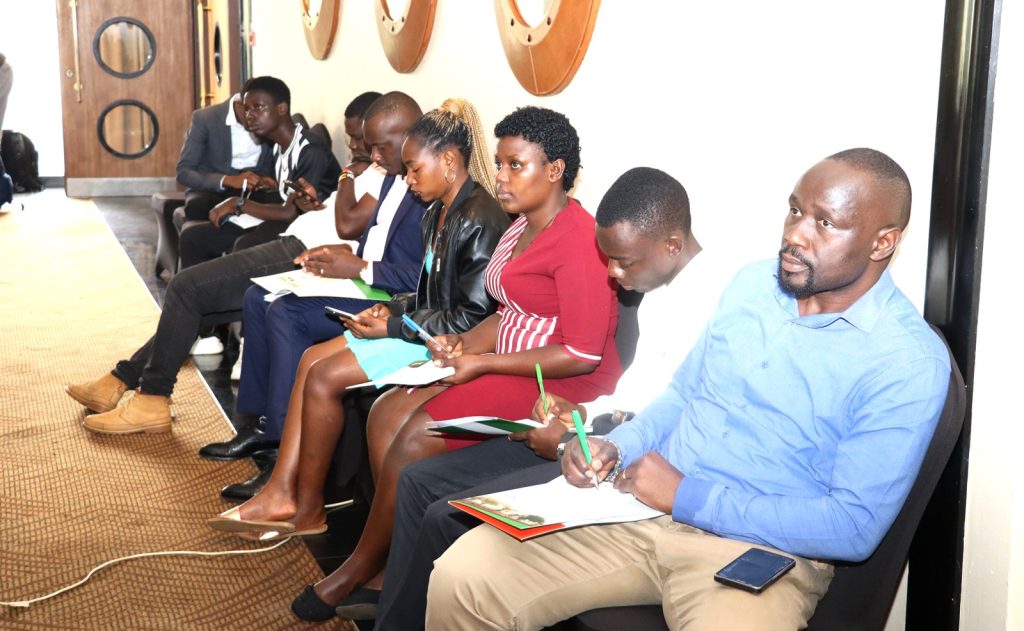
We have seen that one being caused by the environment hitting back. Maybe because that very area was a wetland, but during the construction of the house or the building or the road, this was not catered for.” The Director decried.
It is time to protect the environment through mindset change, best practices and investment in green initiatives
Prof. Edward bbaale
Prof. Bbaale stressed that it is now time to talk about protecting the environment against greenhouse gases and, one sure way, apart from mindset change and preaching to the population on the best ways of life, one other way, is through investment.
He observed that almost 85% of Uganda’s households depend on biomass for cooking, mainly firewood and charcoal. He said, it is dangerous and leads to deforestation, pollution and respiratory diseases. The alternatives he said, can come through, for example, using LPG and electricity which are very expensive and require subsidies to make sure that an average household can afford consistently.
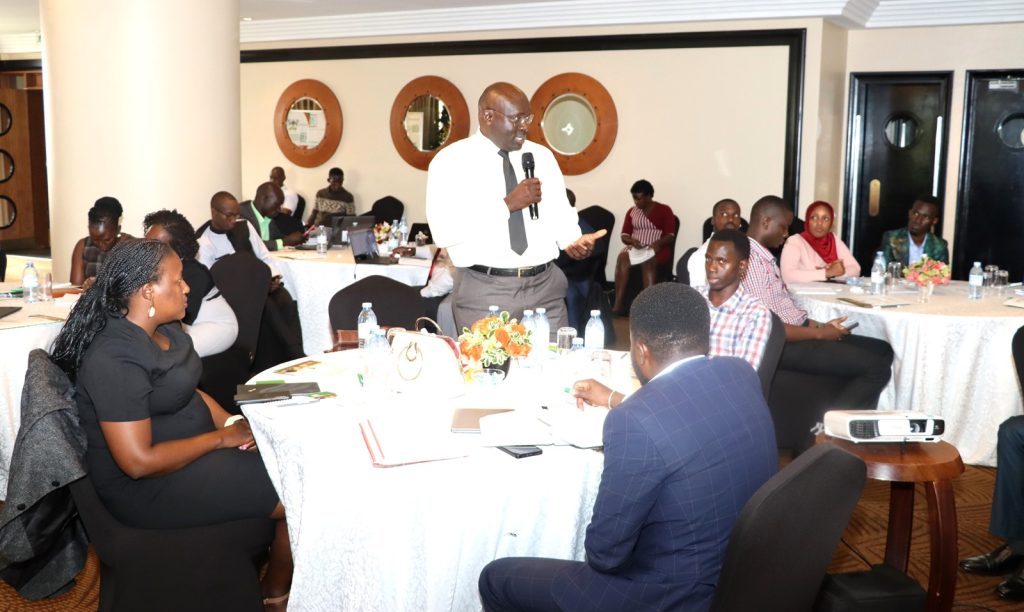
Bbaale called for mindset change among the citizenry and re-orientation of the country’s infrastructure to allow citizens ride bicycles to short distance workplaces to reduce on use of vehicles and pollution.
“You do not need to board a vehicle if you are coming from 1.5 kilometers away. A bicycle can do that, even 20 kilometers away. But now we need to establish the infrastructure for that. Have lanes that are for bicycles alone. And when you’re riding your bicycle, you are very safe. You will not meet your death because of riding a bicycle.
I’ve interacted with the professors elsewhere in the developed world, and the head of the university, the president of the university rides a bicycle to work. But these people are safe. So the question is, are you safe when you ride a bicycle to go to your place of work? But now, for us to re-orient, we require financing. And also how would you ensure that most of us will be riding electric motorcycles which don’t emit any gases?”. Bbaale said.
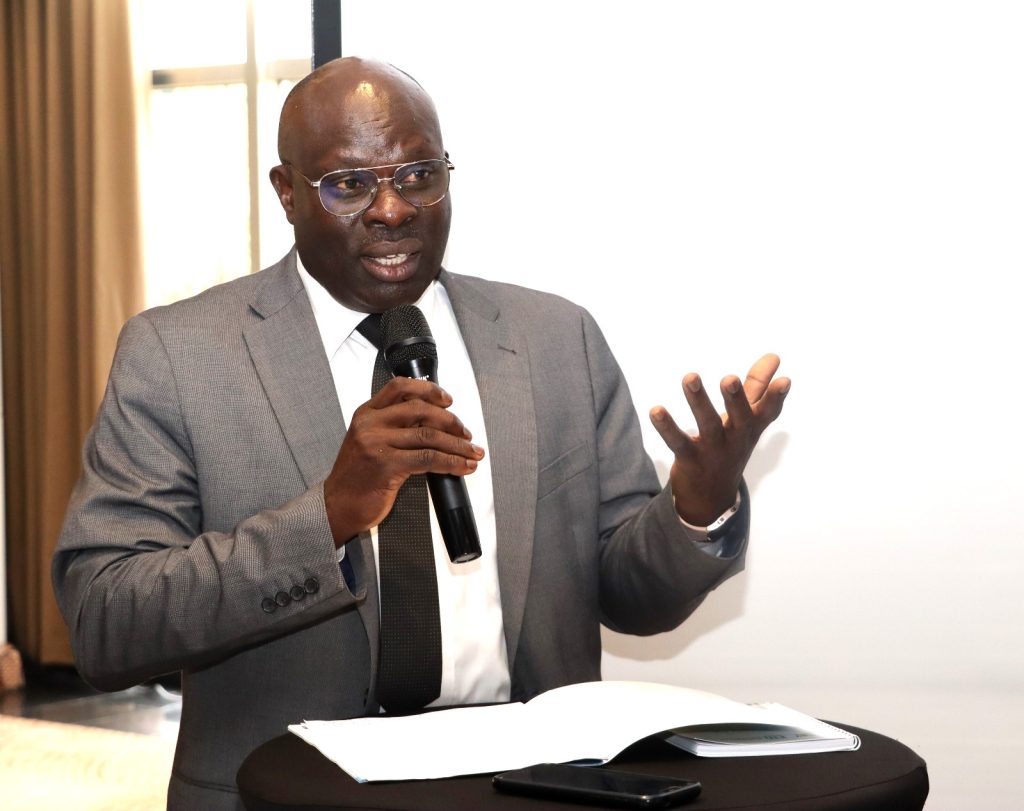
The don also welcomed the move to the manufacture and use of electric vehicles.
“Okay, how can we, all of us, ensure that we shall at one time be driving electric cars which require that they are charged to make sure that you have enough current that will take you to Mbarara. This means that as you drive to Mbarara, somewhere, there must be a point where you go and refill your current as you drive an electric car.
But now, government investment requires that the planning, programming and the budgetary processes are in view or in perspective of the need to finance these green investments.”, He added
The Director explained that some of the issues might require doing adaptation, and so need adaptation finance while some of the issues would require to finance the disaster, because,for example, the floods bring disasters, landslides and all of these. And so it requires that there is a fund for disasters that happen because people suffer through climate shocks.
Part of the Green Fund should come from the greatest polluters in the country and the Developed countries
prof. edward bbaale
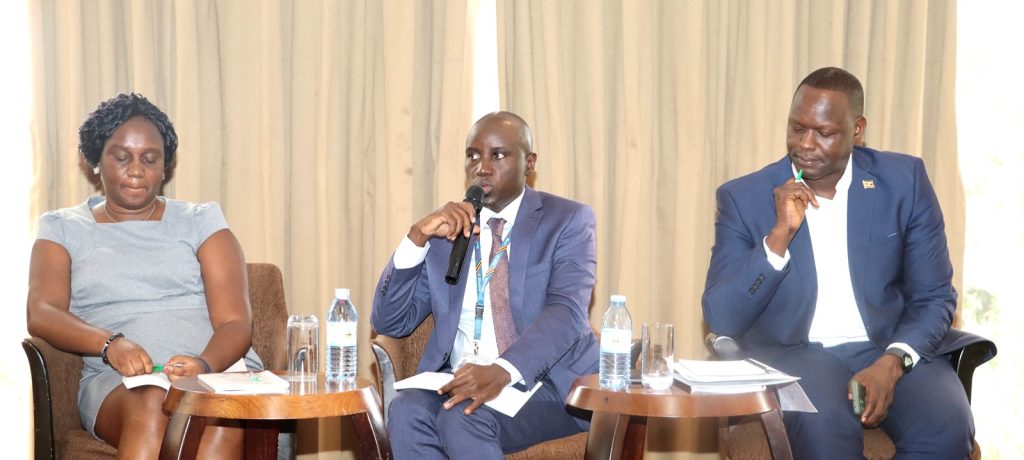
Prof. Bbaale also noted that Neither Uganda as a country, nor Africa as a continent of Africa, is not solely responsible for climate issues faced.
“…Because our colleagues in the north that are already developed, America, Europe and all that, during the industrial revolution released a lot of greenhouse gases into the environment. And that’s why actually negotiations are going on that the developed countries that actually polluted the environment in the first place should pay.
So, part of the fund that I’m talking about should come from the developed countries. Part of the fund should come from China, Europe and, part of the fund must come from the United States”, Bbaale asserted.
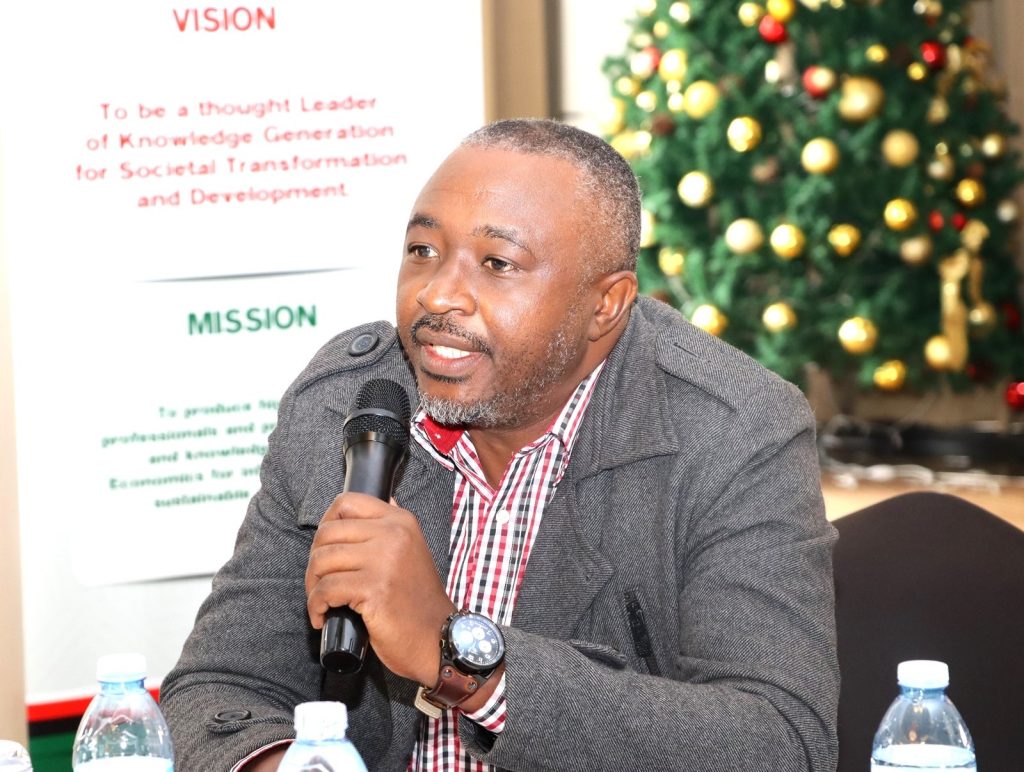
Bbaale added that greatest polluters in the country must pay correctly for what they have damaged.
“We must map and know globally who are the greatest contributors to the climate fund. The same applies to Uganda. We have had the debates. Who are the greatest polluters? If you are running an industry and you are releasing waste products into Lake Victoria, you must pay so that government can use the money you have paid to correct what you have damaged.
…even if you were just releasing, because of your industrial activity greenhouse gases into the atmosphere, government should be in a position to compute the extent of damage you are causing and therefore you, the private investor, be able to pay for that. And so, government requires to finance activities that constitute green transitions”, Bbaale advised.
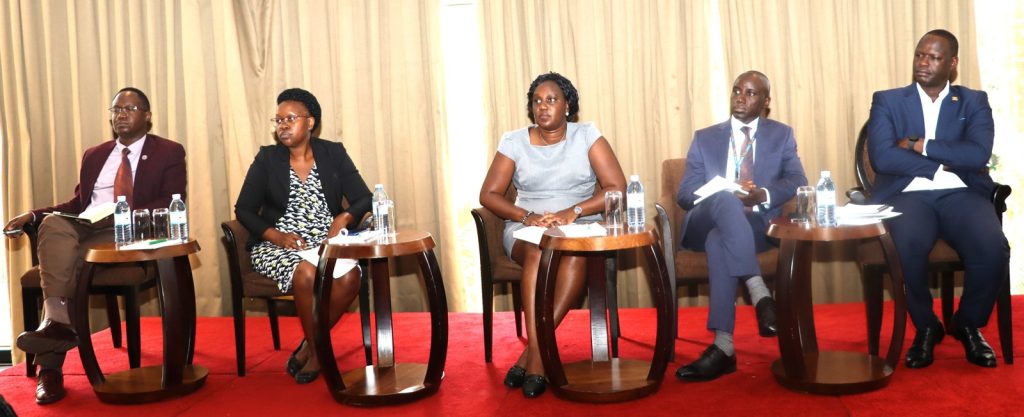
He said transiting into a green environment has two phases. Number one, is mindset change that is, what we do as human beings, and it also has to do with the real costs which is not cheap.
EfD-Mak Policy Engagement Specialist for Inclusive Green Economy (IGE) Program Dr. Peter Babyenda said, as a country, continent and globe, there is a lot on paper, but practice is lacking.
Babyenda expressed the need to involve everybody starting from the public, the academia, media, manufacturers and commercial banks among others.
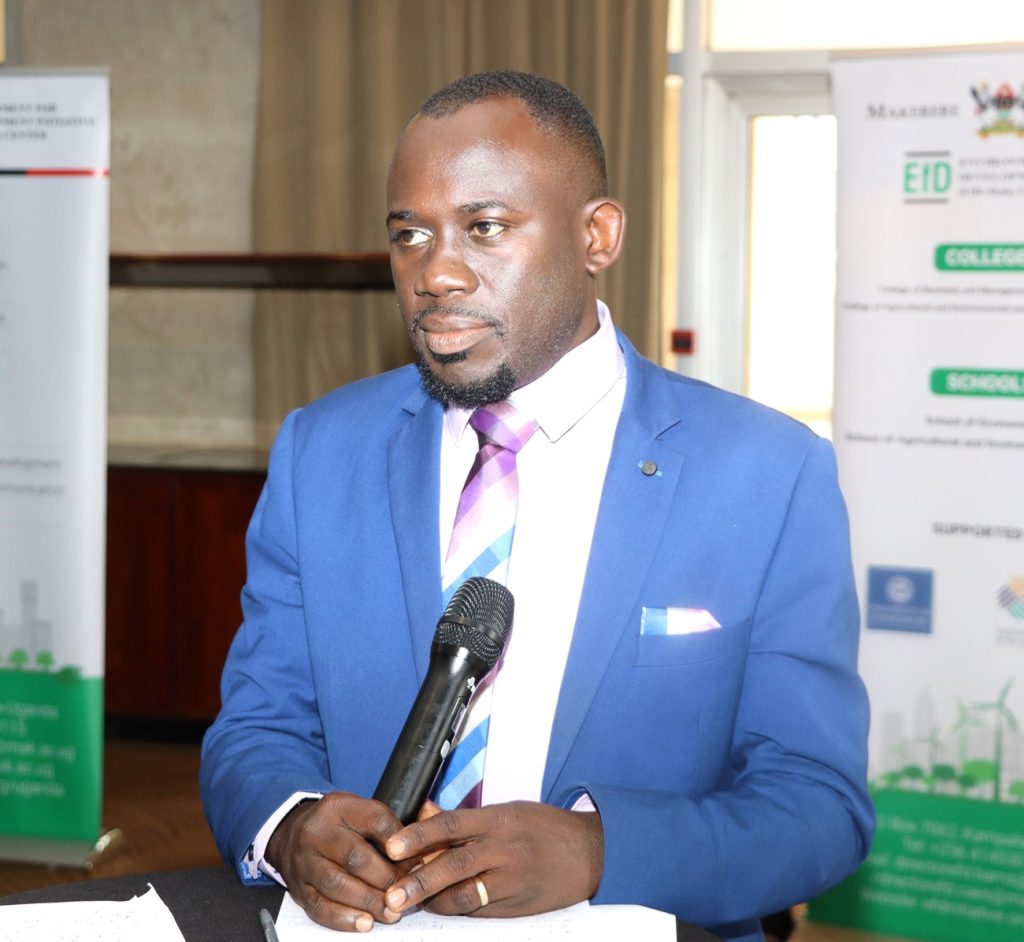
“We have realized that whenever we are coming up with these policies, more so, to do with banking, the commercial banks which deal with the person are not part of the negotiations yet there is no local person who goes directly to the central bank. So we need to involve banks right away from planning to implementation”, He said.
Babyenda also said, there is need to invest in mindset change and be able to raise funds locally as a country.
“We cannot plan for green financing where 80% of the budget is from the donors So, we need to mobilise the funds locally through contributions from emitting manufacturers, people in Agriculture and fossil fuels,” He said
Babyenda also said there is need to define the products clearly starting where the green financing will go for instance investments in tree planting, subsidizing environmentally friendly technologies including the cooking among others.
Jane Anyango is the Communication Officer EfD Uganda
You may like
-


Breaking the Silence on Digital and Gender-Based Violence: Male Changemakers Lead Makerere University’s Strides for Change
-
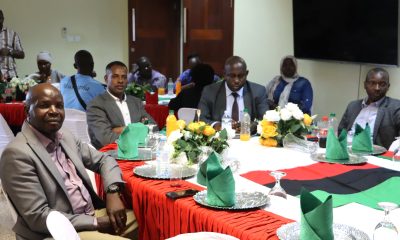

EfD Uganda Marks 2025 Milestones, Sets Strategic Path for 2025–2029
-
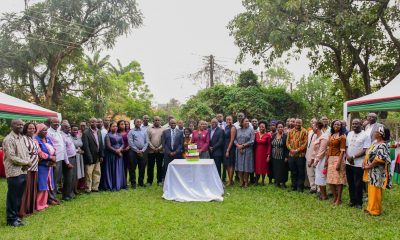

Makerere University CoBAMS Staff celebrate 2025 achievements
-
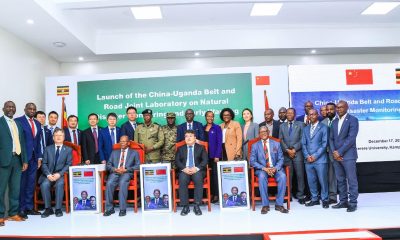

Makerere University and Tsinghua University Launch Landmark China–Uganda Joint Laboratory on Natural Disaster Monitoring and Early Warning
-
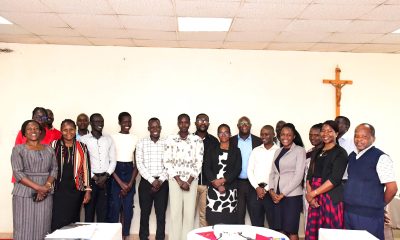

Facilitating Access and Participation through Higher Education Access Programmes and Connected Education for Students with Refugee Backgrounds: A Global South Delphi Study
-


VC Flags off 220 Strong Contingent to 20th AUUS Games
Business & Management
EfD Uganda Marks 2025 Milestones, Sets Strategic Path for 2025–2029
Published
2 weeks agoon
December 20, 2025By
Jane Anyango
Kampala, Uganda – December 19, 2025 — The Environment for Development (EfD) Uganda Centre at Makerere University has taken stock of its 2025 achievements and outlined its strategic direction for 2025–2029, with a strong focus on energy transition, climate change, and sustainable natural resource management.
The reflections were shared during the Centre’s annual end-of-year celebration, which brought together members of the EfD Steering Committee, deans from the School of Economics and the School of Agricultural Sciences, government officials, private sector actors, civil society organisations, researchers, and students.
Interdisciplinary Foundation Strengthens Impact
Addressing stakeholders, EfD Uganda Director, Professor Edward Bbaale, highlighted the Centre’s progress in institutional development, research, policy engagement, and capacity building. While acknowledging challenges encountered during the year, he noted that these provided valuable lessons as the Centre transitions into a new strategic phase under the EfD Strategic Plan (2025–2029).
Prof. Bbaale underscored the Centre’s unique positioning within Makerere University, noting that it is jointly anchored in the School of Economics and the School of Agricultural Sciences. This interdisciplinary foundation, he said, enables EfD Uganda to address complex development challenges such as energy transition, climate change, water resources, forestry, biodiversity, and agriculture from a holistic perspective.
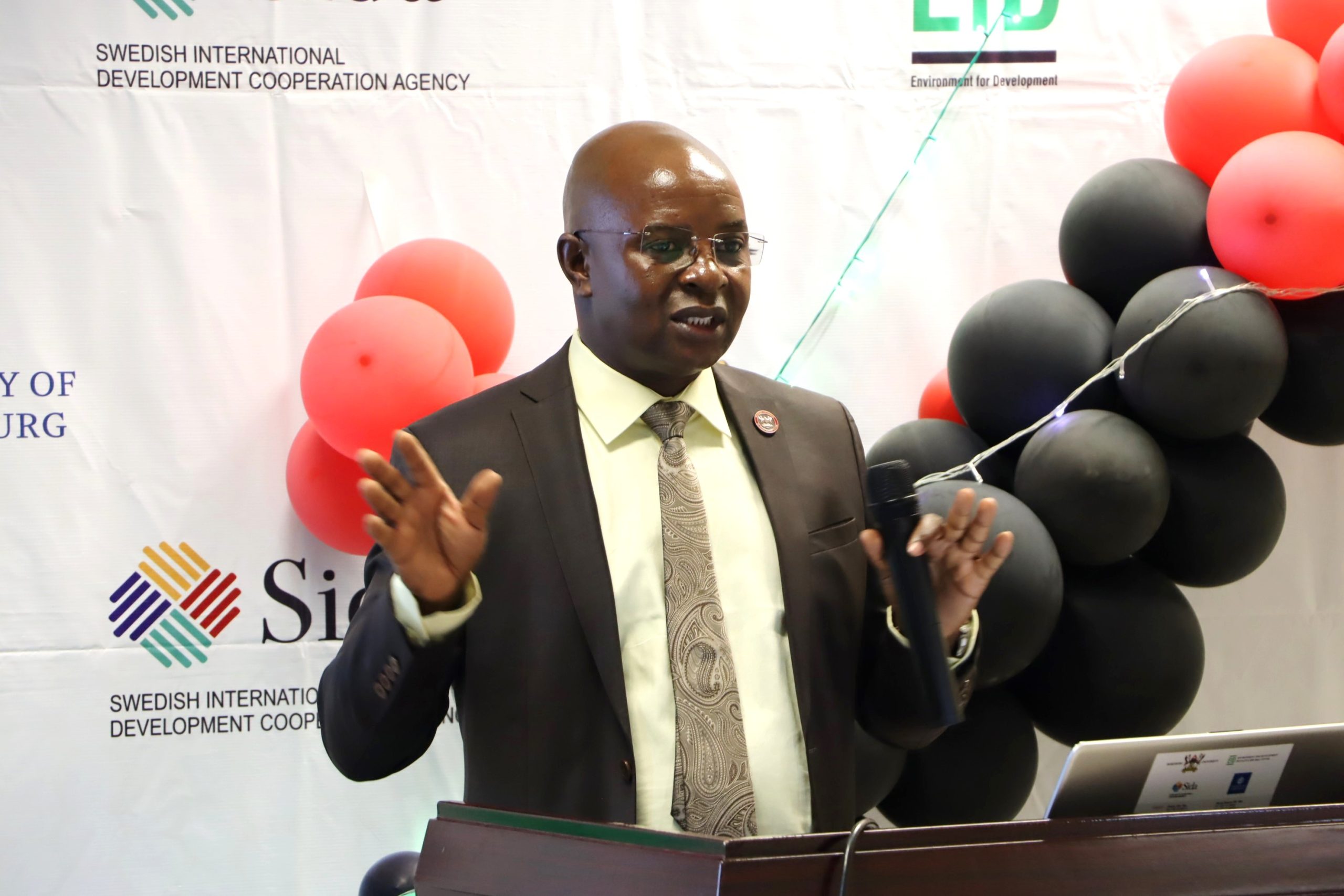
“This approach aligns with Makerere University’s policy on research institutes and reflects global trends that increasingly demand cross-disciplinary collaboration,” he said.
He further highlighted existing academic synergies, with PhD students in Economics and Agricultural Economics sharing coursework, and announced the launch of a Master of Science in Environment and Natural Resource Economics, recently approved by the National Council for Higher Education. The programme, jointly developed by faculty from both schools, is expected to strengthen training in environmental economics and natural resource management.
Strategic Direction for 2025–2029
Prof. Bbaale unveiled the Centre’s strategic plan for 2025–2029, anchored on six thematic areas: energy transition; climate change adaptation and mitigation; climate-smart agriculture; water resources management; forestry and biodiversity; and environmental quality.

He noted that climate change remains a cross-cutting issue across all themes, adding that EfD Uganda will continue to work closely with stakeholders to ensure its research informs national policy and practical interventions.
Over the next five years, the Centre’s research will focus on land use and biodiversity conservation, climate-smart agriculture, climate change adaptation and mitigation, and energy transition-areas expected to generate evidence-based solutions for Uganda and the wider region.

Key stakeholders identified for collaboration include the National Planning Authority, the Ministry of Finance, Planning and Economic Development (Climate Finance Unit), the Ministry of Agriculture, Animal Industry and Fisheries, the Ministry of Water and Environment, the Ministry of Energy and Mineral Development, and district local governments.
Major Achievements in 2025
Prof. Bbaale reported that the Centre concentrated its efforts on the three pillars of Makerere University: research, policy engagement, and training.
Policy Engagement
The Centre organised two high-level dialogues on climate-smart agriculture and a policy dialogue on e-mobility under the Inclusive Green Economy (IGE) programme.
“We chose e-mobility because it is a green mode of transport,” Prof. Bbaale said. “Through the IGE programme, we worked with senior civil servants and policymakers to explore how Uganda can transition to a greener economy.”

The programme also facilitated cross-country peer learning among Ethiopia, Tanzania, Kenya, Rwanda, and Uganda. He cited Rwanda’s rapid electrification of motorcycles through taxation and subsidies, and Tanzania’s success in universal rural electrification, as key lessons.
Capacity Building
The Centre conducted more than ten training sessions for fellows, researchers, policymakers, and graduate students. It also recruited a funded postdoctoral fellow Dr. Gemeda Olani Akuma. from Ethiopia, to work on natural capital issues.
“Postdoctoral fellows are critical to knowledge generation,” Prof. Bbaale noted. “If Makerere strengthens its postdoctoral programme, our research output will more than triple.”
He referenced benchmarking visits to South African universities with strong postdoctoral systems, noting that Makerere is steadily moving toward becoming a research-led institution.
New Projects and Institutional Growth
EfD Uganda launched five new projects and expanded its institutional partnerships during the year. These included Sida-funded initiatives, a consultancy with GIZ, the Centre’s first MakRIF-funded project, and grants from the Gates Foundation and the Carnegie Corporation.
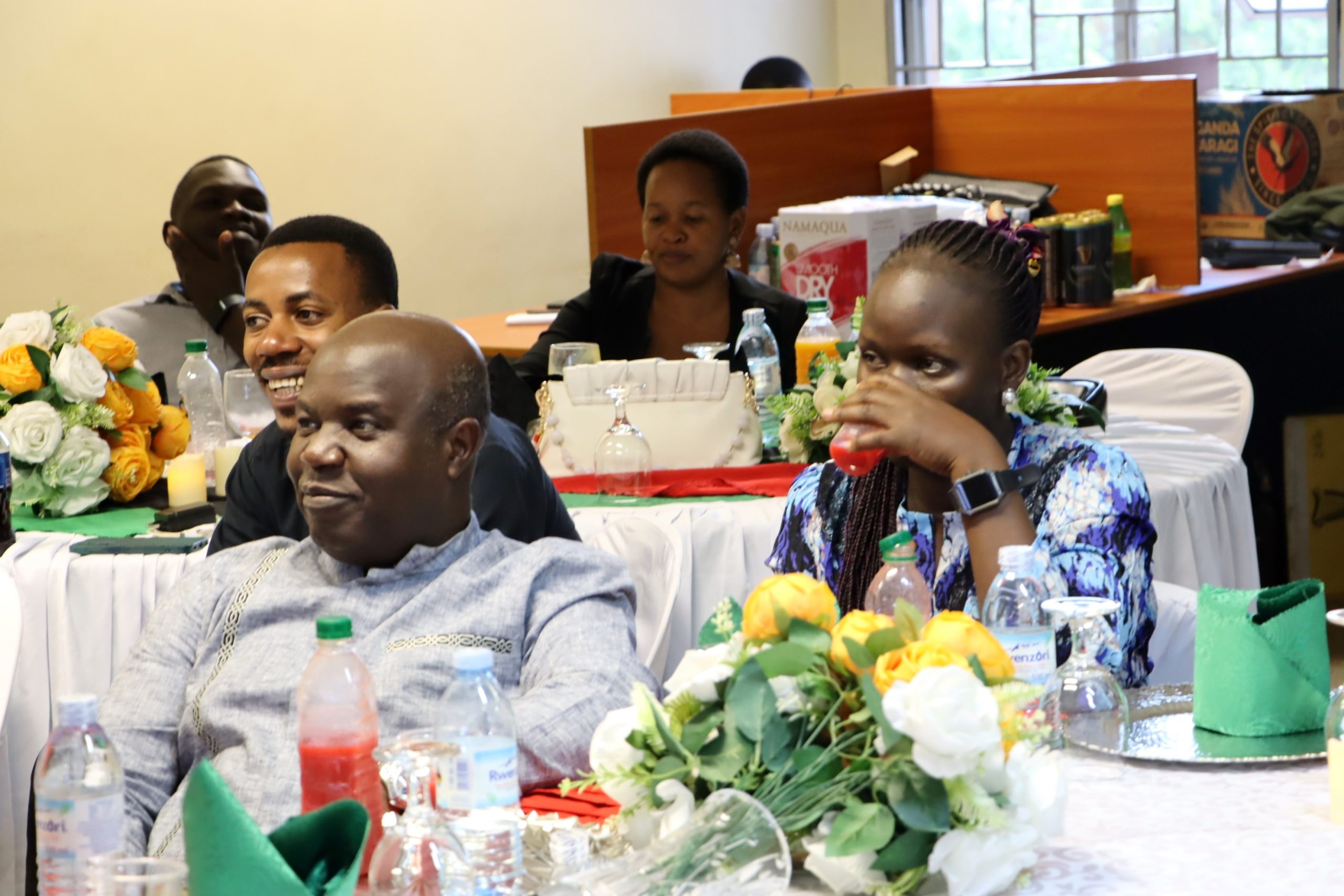
In institutional development, the Centre inaugurated 13 new advisory board members, strengthening governance and oversight. Prof. Bbaale also introduced the Centre’s core staff, praising their dedication and commitment to capacity building, including the mentorship of interns and teaching assistants some of whom have since joined institutions such as the Bank of Uganda.
Strengthening National and International Engagement
The Centre deepened collaboration with national institutions, including the National Planning Authority, the Ministry of Finance, Parliament, and the National Water and Sewerage Corporation. Among ongoing initiatives is a study aimed at improving bill payments at the utility to unlock new investments and service improvements.
EfD Uganda is also working with district local governments to build capacity in environmental valuation and natural capital accounting, supported by MakRIF funding from the Government of Uganda.. Trainings were conducted for districts in central Uganda and in Fort Portal.

At the international level, the Centre hosted visiting scholars, including Prof. Edwin Mchapondwa from the University of Cape Town, who trained government officials on community-based conservation, and Prof. Mark Purdon from the University of Montreal, who launched a book on carbon markets.
EfD’s Natural Capital Accounting Model Adopted by Government
A major highlight was the development of a natural capital accounting model, supported by GIZ and now adopted by the Ministry of Water and Environment. The Excel-based MoneyCap model, developed in collaboration with the Ministry of Finance, UBOS, and the National Planning Authority, supports policy assessment by comparing investment scenarios in natural capital.
“This places us at another level,” Prof. Bbaale said, noting that the model aligns with global climate finance discourse and Africa’s emerging coalition of finance ministers for climate action.

Prof. Bbaale warned that Uganda’s agriculture sector must urgently adapt to climate realities, citing erratic rainfall and rising temperatures. He stressed that climate-smart agriculture is critical to safeguarding livelihoods and food security.
The Centre also celebrated the graduation of a new cohort of Inclusive Green Economy Fellows, supported by Sida, and announced five new grants, including a Carnegie-funded project on household and SME energy efficiency and a grant for climate-sensitive macroeconomic modelling and the Makerere Research and Innovation Fund (MakRIF) from the Government of Uganda
Commitment to Policy-Relevant Research
In his concluding remarks, Prof. Bbaale reaffirmed EfD Uganda’s mission to generate research that delivers practical solutions for policymakers and communities.

“Our work asks a fundamental question: how much natural capital are we depleting in the pursuit of growth?” he said. “That is the frontier we are working on.”
He thanked the Centre’s team for their dedication and contributions throughout the year.
Centre Reaffirms Commitment to Collaboration
Dr. Peter Babyenda, Policy Engagement Specialist, reaffirmed EfD Uganda’s commitment to collaboration with policymakers, academia, civil society, and the media.
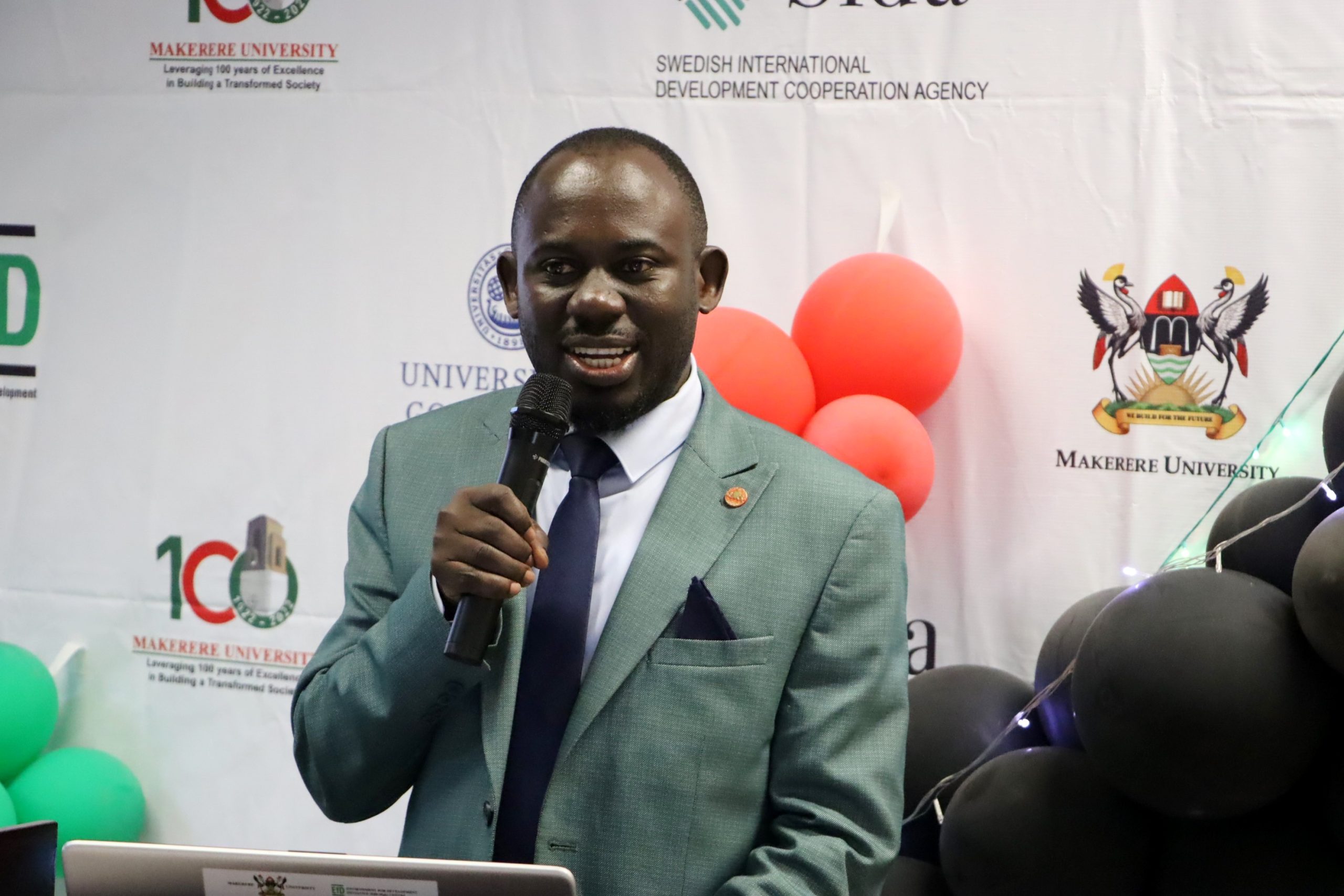
“Policy engagement includes working with the media,” Dr. Babyenda said. “We remain open to partnerships and invite stakeholders to engage with us.”
He thanked participants for attending the annual reflection event and encouraged continued networking.
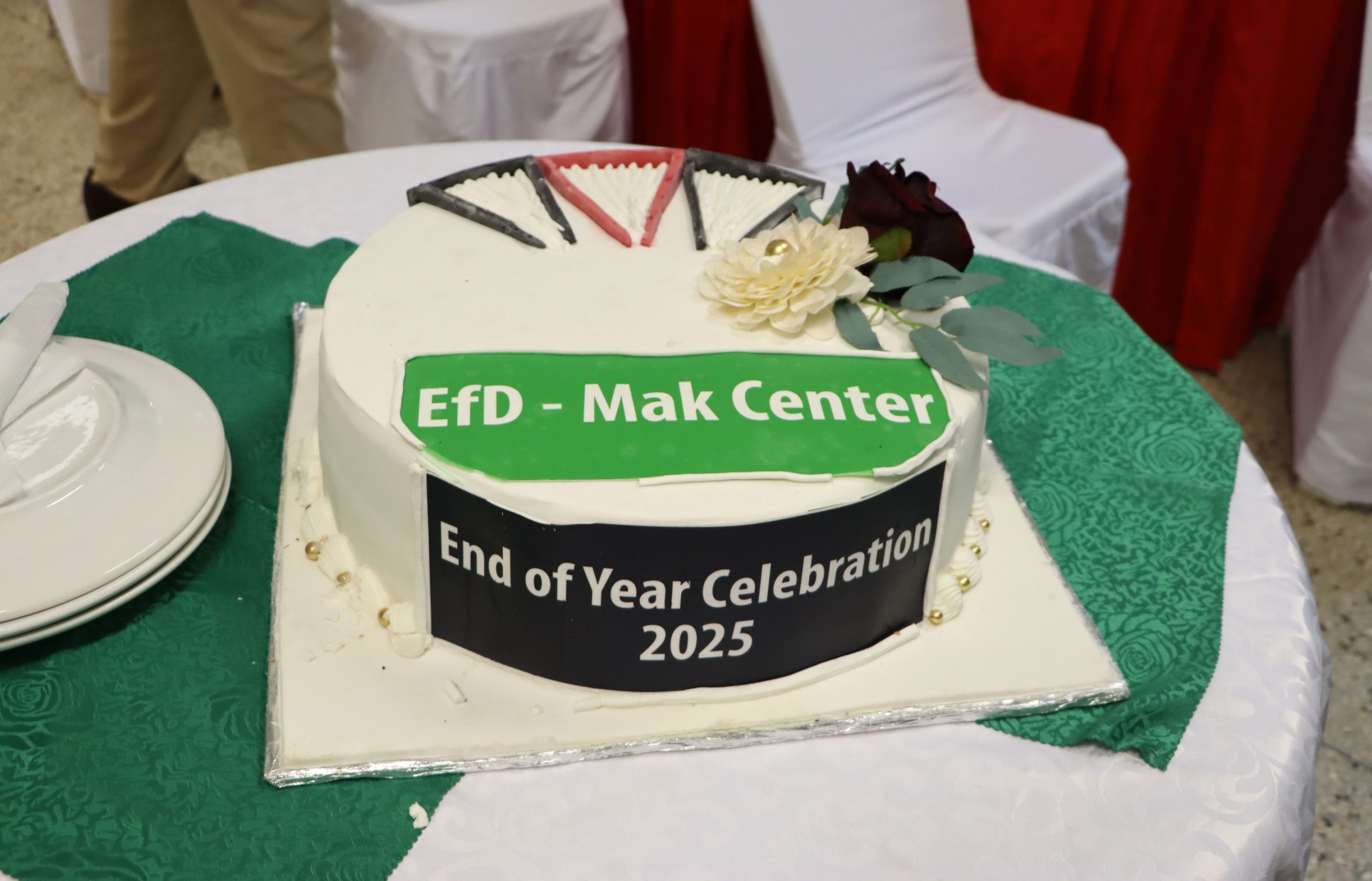
Jane Anyango is the Communication Officer, EfD-Mak Centre
Business & Management
Makerere University CoBAMS Staff celebrate 2025 achievements
Published
2 weeks agoon
December 19, 2025
December 18, 2025 – Coming after the successful completion of the examination season, and as the year comes to an end, the afternoon, evening and night hours of 18th December 2025, presented the best opportunity, to staff to reflect on the 2025 College of Business and Management Sciences (CoBAMS) achievements in a relaxed environment.
The ever-green Makerere University Guest House gardens provided comfort as staff continued to enjoy this lovely space situated on the Makerere University Main Campus.
The event brought together the Principal, Deputy Principal, Deans of the respective Schools, Heads of Department, academic, administrative, technical and support staff, as well as guests, in a mix of celebration, networking, and recognition.

The end of year staff get-together provided a platform to strengthen collegial relationships, and reflect on the College’s future direction. In the true sense of networking, the event also featured dance competitions amongst staff.
Recognition of CoBAMS staff who received the Vice Chancellor’s Excellence Awards 2025

A key highlight of the event featured recognition of the ten (10) members of staff from CoBAMS who received the Vice Chancellor’s Excellence Award 2025. These included: Early Career Scholar Category-Namugenyi Christabellah and Dr. Richard Ssempala, Mid-Career Scholar Category-Dr. Peter Kisaakye, Dr. Anthony Tibaingana, Dr. John A. Mushomi, and Dr. Kasimu Ssendawula, Senior Career Scholar Category-Dr. Stephen O. Wandera, and the Best Teachers Category-Dr. Patricia Ndugga, Dr. Faisal Buyinza and Mr. Fred Kasalirwe.
Presenting the CoBAMS Awards amidst applause from members of staff, the Deputy Vice Chancellor (Academic Affairs)-Prof.Sarah Ssali flanked by the Deputy Principal of the College, Associate Professor James Wokadala read a special message: “Your dedication elevates the standards of the College of Business and Management Sciences and brings distinction to Makerere University.”
Collective Achievements and Strategic Priorities

Professor Edward Bbaale, Principal of CoBAMS, in his end-of-year message, acknowledged the dedication of all staff and their contributions to the college’s success. “I sincerely thank all colleagues across our academic, research, administrative, and support units for your relentless dedication to advancing the mandate of the College. Your collective efforts remain the backbone of our success and institutional resilience,” he said.
Prof. Bbaale highlighted notable achievements in research and publications, congratulating staff who received the Vice Chancellor’s Excellence Awards and Best Teacher Awards. “These achievements reflect individual distinction and collective pride for our College. I encourage you to sustain this excellent performance,” he said. He further recognised faculty who secured research grants from Mak-RIF, international development partners including the Gates Foundation, UN-PAGE, GGGI, the World Bank, and Erasmus+, noting that such successes reflect growing global trust in CoBAMS scholarship.
The Principal underscored the college’s role in fostering institutional growth and partnerships. “I appreciate colleagues who have initiated and advanced Memoranda of Understanding with domestic and international partners. These platforms strengthen relevant academic training, impactful research, and policy engagement,” he said.
He highlighted new academic programs responsive to Uganda’s economic and societal needs, emphasising the college’s forward-looking and development-oriented approach.
Prof. Bbaale praised initiatives promoting staff welfare and cohesion, including the CoBAMS Physical Fitness Programme and the Mak-CoBAMS SACCO.
On infrastructure development, the Principal noted, “Government has allocated resources to commence the CoBAMS Infrastructure Expansion Project, and the University Council has approved two strategically located plots of land for its implementation. We shall actively engage the design consultant to ensure the buildings meet our teaching, research, innovation, and policy-engagement needs.”
He concluded his remarks by acknowledging life’s challenges alongside successes, extending condolences to staff who lost loved ones in 2025 and seasonal greetings: “As we step into 2026, I wish you and your families a year filled with God’s abundant blessings, good health, professional fulfilment, and personal joy. Merry Christmas and a Happy New Year to all.”
DVC Academic Affairs praises Research, Innovation, and Integrity
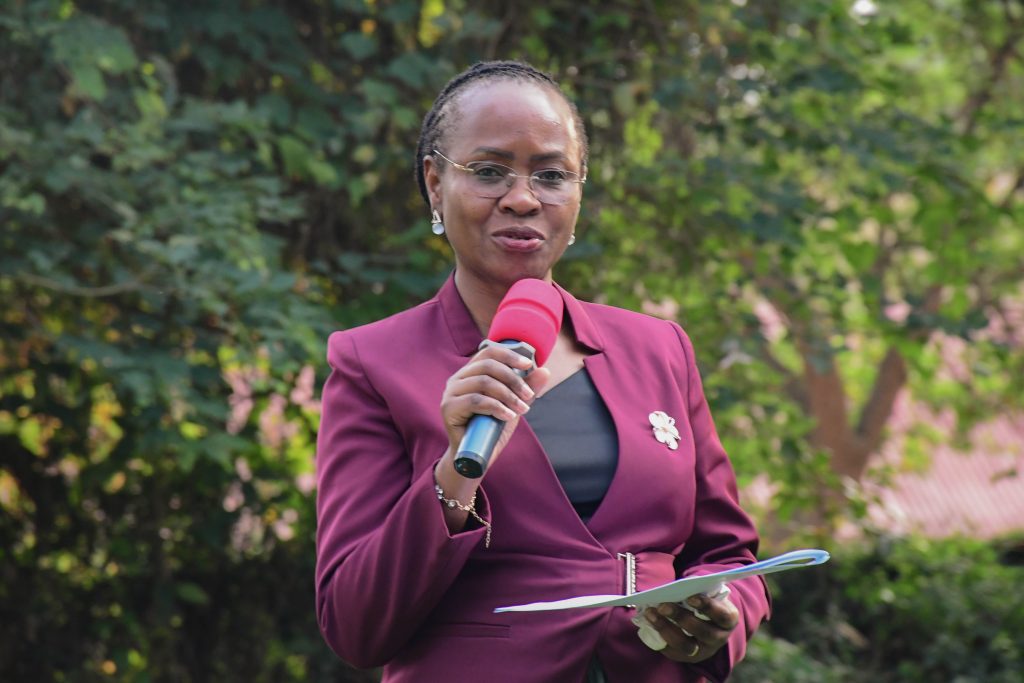
The Deputy Vice Chancellor for Academic Affairs, Professor Sarah Ssali, praised CoBAMS for its contribution to Makerere University’s strategic goals.
She extended warm greetings from the university management, including the Vice Chancellor, and underscored the importance of every staff member’s role. “Whatever role you play, you are adding a brick to this institution, just as those before us did,” she said.
Prof. Ssali highlighted the college’s research-led initiatives, emphasizing the importance of postgraduate and doctoral programs as a pipeline for academic excellence. “I commend CoBAMS for taking this seriously. Your work reflects the university’s strategic direction and internationalisation,” she said.
She noted the recent launch of the CoBAMS Working Paper Series and encouraged its development into four journals in economics, business, statistics, and planning in the near future. “This will allow graduate students to actively contribute, mentoring the next generation of scholars while strengthening Africa’s knowledge production and decolonising knowledge,” she explained.
The DVC Academic Affairs acknowledged CoBAMS for innovative approaches to research and value addition. “During the Entrepreneurship Expo, your work with coffee demonstrated how one thematic area can generate multiple products—from coffee oil to bath scrubs—showing creativity and value addition. Similarly, demography and population studies contribute crucial expertise, from census data to electoral processes,” she said.
Prof. Ssali encouraged the college to document and develop indigenous knowledge systems. “Your role as a college is to study local economic models, explore African-informed business and economic practices, and produce scholarship that reflects local realities,” she said.
She congratulated faculty members who secured research grants, published in peer-reviewed journals, or served as editors, noting that these achievements reflect both individual excellence and the academic culture of CoBAMS.
Reflecting on the Professor Emmanuel Tumusiime-Mutebile Centre of Excellence at Makerere University and the research promoted by the Tumusiime Mutebile Foundation, Prof. Ssali called for rigorous development of the initiative. “While research chairs focus on individual scholarship, Centres of Excellence build pipelines of knowledge for future generations, preserving the legacy of scholars namely Dr Mutebile in monetary policy, finance, and banking,” she said.
Networking and Teamwork
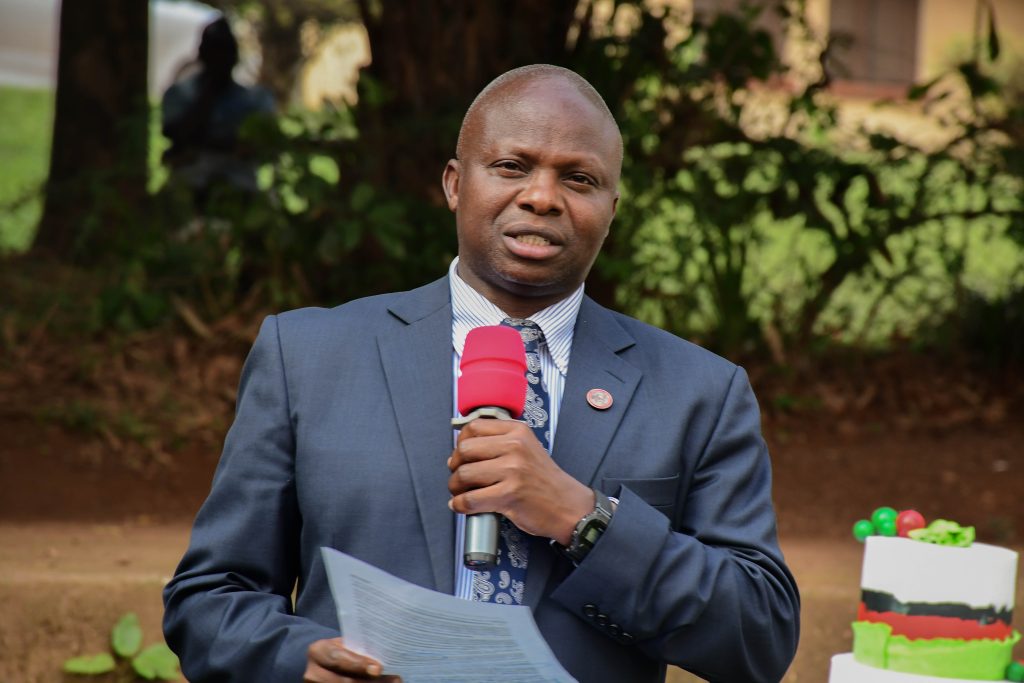
In his address, Associate Professor James Wokadala, the Deputy Principal of CoBAMS, emphasized the importance of networking and teamwork. “Today is a day for networking. This is a time to connect socially, celebrate, and reaffirm our commitment to serve Makerere University and, specifically, our College.”
He applauded staff for supporting the college’s teaching, learning, research, and student mentorship activities. He highlighted CoBAMS’ innovative initiatives, including the CoBAMS SACCO and the CoBAMS fitness club, which promote teamwork, wellness, and collegiality.
He thanked the event organisers for their efforts and acknowledged those who have supported administrative processes, such as fast-tracking promotion applications. He called upon staff to continue collaborating to serve Makerere University, the nation, and humanity.
Staff Appreciate the get-together moments
Charmed by the spirit of celebration, dance competitions amongst staff, and the choice of trending music, a significant number of staff stayed at the venue until the party came to a complete stop at 10:00p.m.
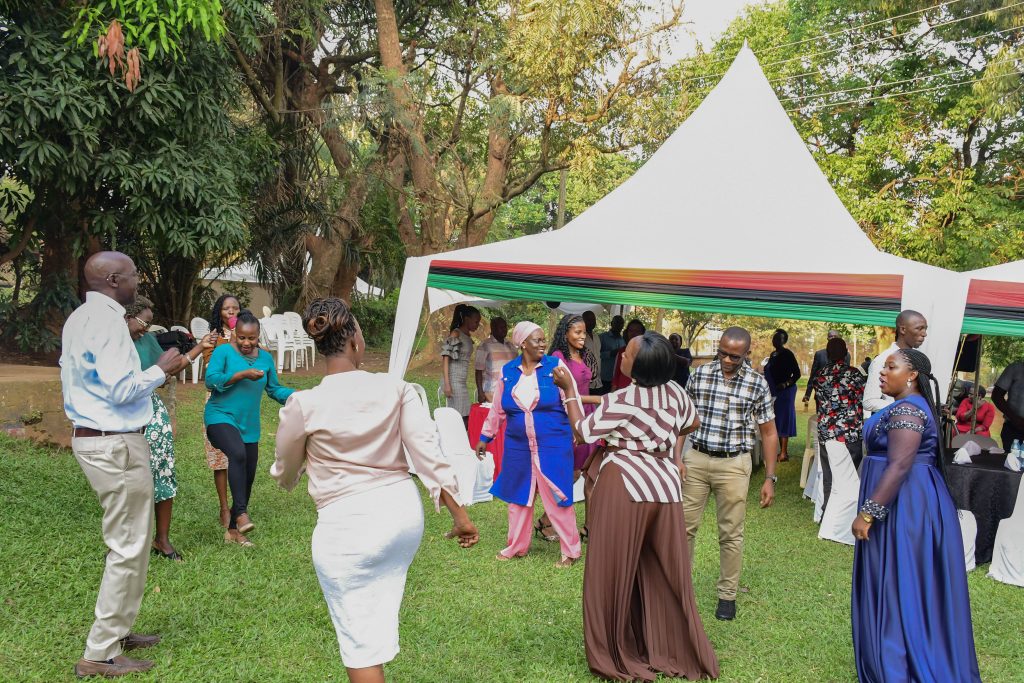
The following day (19th December 2025), the rejuvenated staff took to the College WhatsApp platform, and wrote messages, acknowledging being refreshed, feeling nice and young again. They requested the College leadership to plan for more of such engagements that promote teamwork, collegiality and good health.
Business & Management
Makerere University Launches CoBAMS Working Paper Series, Marking a major Leap in Research Excellence
Published
4 weeks agoon
December 8, 2025
On 4th December 2025, the Deputy Vice Chancellor for Academic Affairs, Prof. Sarah Ssali launched the College of Business and Management Sciences (CoBAMS) Working Paper Series, a research product aligned with the UN Sustainable Development Goals (SDGs), Uganda’s 10-fold National Economic Growth Strategy (ATMS), and the Makerere University Strategic Plan.
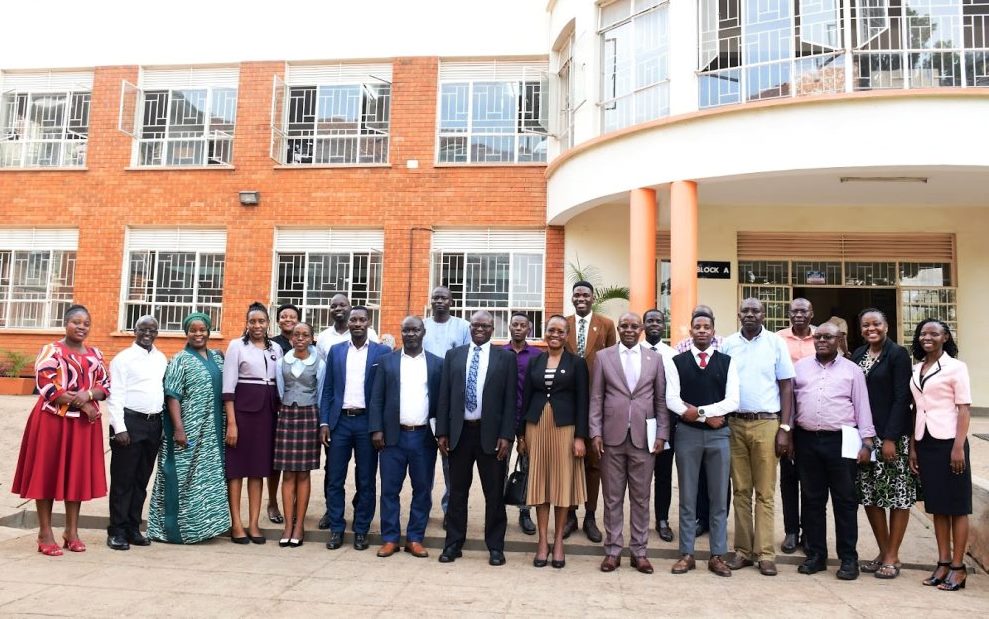
The Series consists of over 60 research papers, many of which have already been accepted in internationally recognised peer-reviewed journals. The publications cover a broad spectrum of national priorities, including unemployment, climate change, population dynamics, taxation, entrepreneurship, public investment, corruption, refugee livelihoods, and the green economy.
A landmark moment for Makerere University
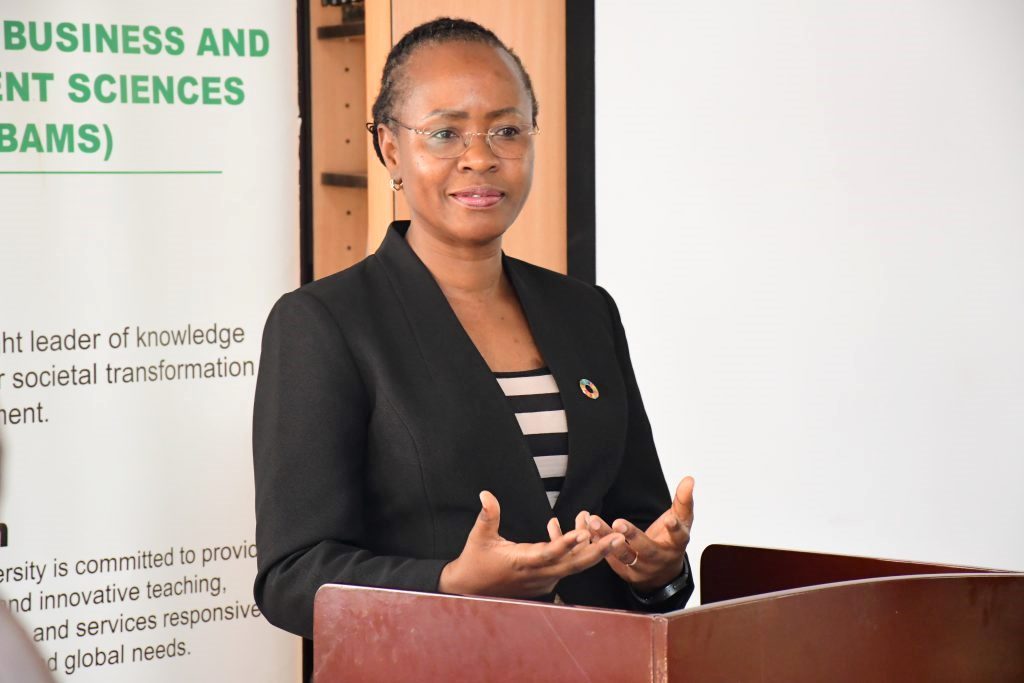
Addressing the participants comprising invited guests, staff, students and the media, who convened at the CoBAMS Conference Hall to witness the launch, Prof. Ssali commended the College leadership and staff for championing Makerere’s research vision. “Today is a landmark moment in the life of Makerere University,” she declared. She emphasized that Makerere’s move toward a research-intensive identity was deliberate. “A few years ago, we made a bold and historic decision to reorient the University toward research and innovation. Today’s launch is evidence that this decision has taken root—especially within CoBAMS.”
Prof. Ssali praised the College for providing a modest annual research grant to faculty members, an initiative that produced more than 60 working papers in the 2024/2025 financial year.
She urged the College to transition the Working Paper Series into homegrown journals, adding: “If you can produce 60 papers this year and 80 next year, you have enough content for at least three journals. Journals raise our visibility, raise our H-index, and ensure that anyone researching Uganda finds homegrown scholarship.”
The Deputy Vice Chancellor (Academic Affairs) highlighted pressing national issues requiring academic inquiry. “Uganda’s economy grows, but unemployment remains high. When we celebrate entrepreneurship, we are often celebrating survival. These are questions this Series must help confront.”
She also pointed to the importance of research in shaping national discourse: “If people are hungry and unemployed, they will go to the streets. We cannot sit here speaking English and pretend these issues will disappear.”
We are proud of this collective achievement
The Principal of CoBAMS, Prof. Edward Bbaale, described the Series as a major achievement rooted in collective effort and consistent commitment to research excellence. “What we are celebrating today is the result of your collective effort,” he told faculty. “This Working Paper Series is a nursery bed for journal articles, book chapters, and future scholarly outputs.”
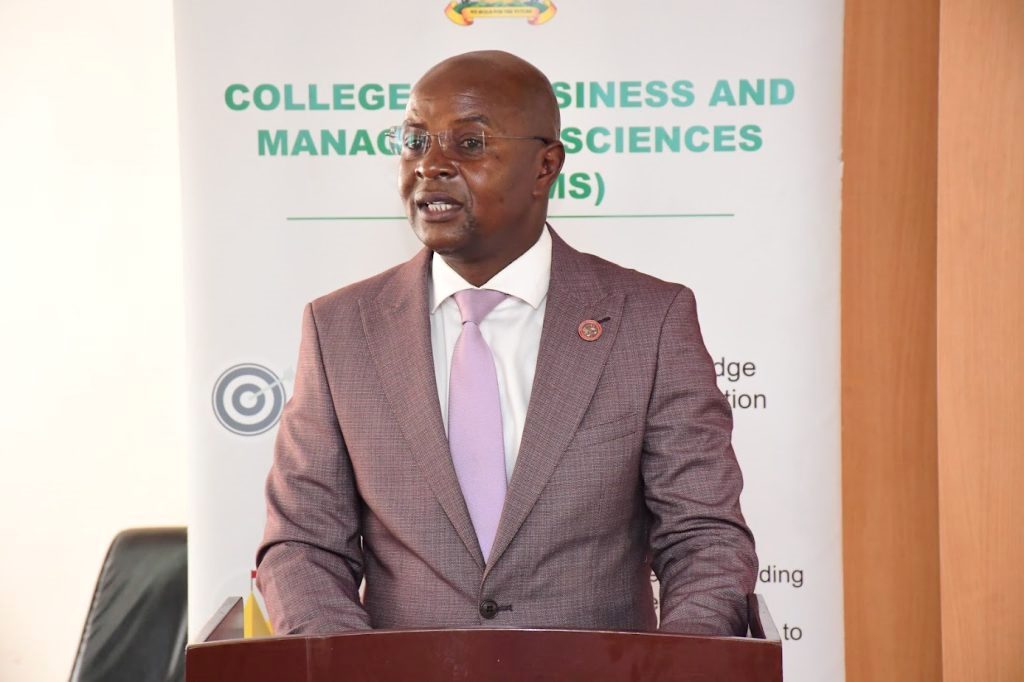
He revealed that for the upcoming(2026) paper series, the College has funded over 90 research concepts and expects to produce more than 80 working papers in the 2025/2026 cycle.
Prof. Bbaale emphasised that the College’s four research centres—in Entrepreneurship and Innovation, Statistics and Demography, Public Investment Management, and the Environment for Development Initiative—form a strong foundation for sustained knowledge production. “These centres anchor high-level research, policy engagement, and interdisciplinary collaboration. They are the backbone of our research ecosystem.”
This journey started with a modest grant
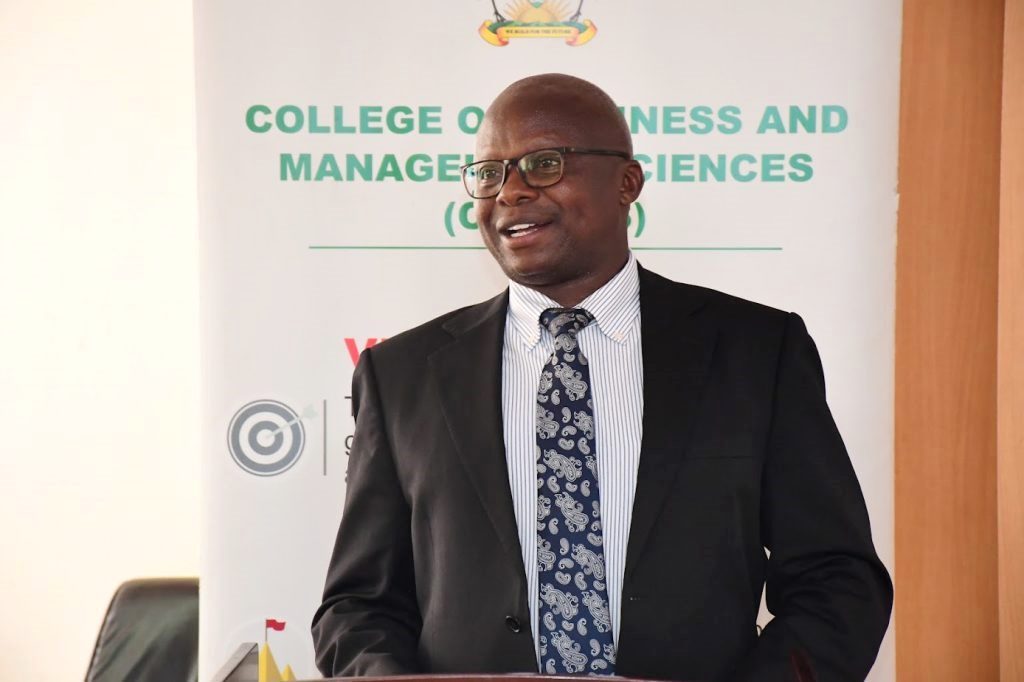
Associate Professor James Wokadala, the Deputy Principal, traced the origins of the Series to a small but impactful College research grant introduced in November 2024. “This afternoon is a very important day for us. This Series is the product of our internal efforts and internal resources,” he said. “By May this year, the working papers had already been finalised by the various principal investigators.”
He noted that each paper went through school-level presentations, editorial checks, and harmonisation before being accepted into the Series. “Today, we are launching 60 of those papers, with many more to follow.”
CoBAMS is a powerhouse of knowledge production

Dr. William Tayeebwa, Chief Managing Editor of Makerere University Press, praised the College’s output and pledged the Press’s support in transforming the papers into high-quality books and journal articles. “The topics and issues contained in the Working Paper Series confirm that CoBAMS is truly a powerhouse of knowledge production.”
He committed to working closely with the College: “We can convert these working papers into journal articles, special issues, and thematic book volumes within six months. Makerere University Press stands ready to support you.”
Dr. Tayeebwa highlighted the broad range of topics covered—refugees, Myooga, malaria, tax compliance, corruption, and more—describing the Series as “a rich intellectual nursery bed.”
PhD Forum: Building the next generation of researchers

Speaking on behalf of postgraduate students, Ms. Sylvia Namujjuzi, Assistant Lecturer and Vice President of the CoBAMS PhD Students Forum, emphasised the importance of peer support in research training. “The PhD journey can be lonely,” she said. “This Forum brings students from the three Schools together to network, share knowledge, organise seminars, and hold mock defences.”
A milestone for Makerere’s research future
Prof. Ssali reaffirmed the University’s commitment: “As Makerere University positions itself among leading research institutions globally, initiatives such as the CoBAMS Working Paper Series give concrete meaning to our strategic vision.”
She officially launched the Series with a call for sustained excellence: “May it grow, mature, and inspire a new generation of researchers. May it elevate Makerere University’s intellectual footprint.”
Trending
-
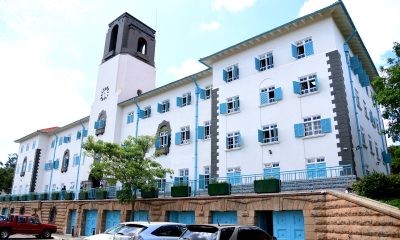
 General4 days ago
General4 days agoAdvert for the Position of the Second Deputy Vice Chancellor
-
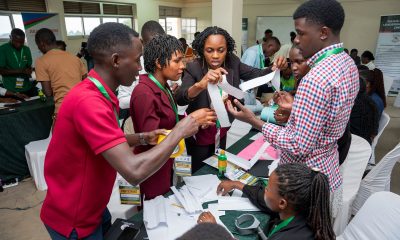
 General4 days ago
General4 days agoUNDP and JNLC hold training in Fort Portal: Participants equipped with skills in Advocacy and Gender Equality, Team Building, Inclusive Leadership, and Financial Literacy
-

 General4 days ago
General4 days agoBreaking the Silence on Digital and Gender-Based Violence: Male Changemakers Lead Makerere University’s Strides for Change
-
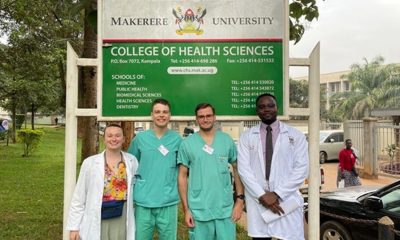
 Health4 days ago
Health4 days agoMakCHS Strengthens Internationalization through Strategic Global Partnerships and Mobility
